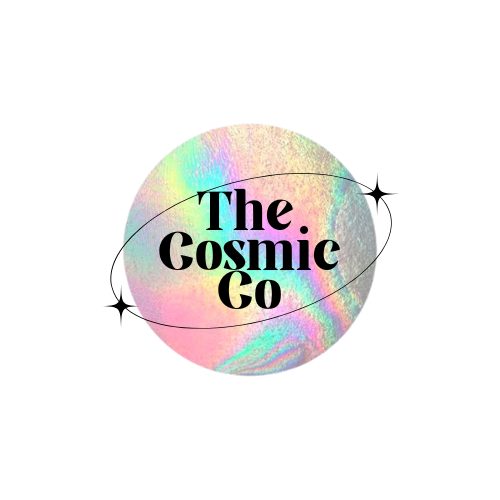Are astrology and astronomy the same thing?
Have you ever looked up at the night sky and felt a sense of wonder? You're not alone! Since ancient times, those twinkling stars have had us spellbound, giving rise to two very different ways of exploring the cosmos: astronomy and astrology. Though they might sound like cosmic twins, they're more like distant cousins who've taken wildly different paths in life. Let's dive into what sets them apart and why it matters.
Astronomy: The Scientist
First up, let's talk about astronomy. Think of it as the science. Astronomy is all about getting down to the nitty-gritty of what's out there in the universe. It uses telescopes, satellites, and some math to study stars, planets, black holes, and everything in between. Astronomers are the detectives of the universe, trying to figure out how it all works, from the big bang to the possibility of other Earth-like planets.
Ancient Observations
Mesopotamia (3000 BCE): Among the earliest astronomers were the Sumerians, who identified constellations and the movements of celestial bodies. They laid the groundwork for later astronomical advances.
Ancient Egypt (2000 BCE): Egyptians aligned their pyramids with the stars and developed a calendar based on the lunar and solar cycles.
China (1200 BCE): Chinese astronomers recorded supernovae, comets, and made detailed star maps.
Classical Antiquity
Greece (600 BCE - 200 CE): The Greeks made significant contributions to astronomy. Philosophers like Thales and Pythagoras speculated about the nature of the cosmos. Eudoxus and Aristotle proposed geocentric models of the universe. Most notably, Ptolemy's Almagest, written around 150 CE, summarized the geocentric theory, which posited that the Earth was at the center of the universe. This model dominated for over a millennium.
The Islamic Golden Age (8th to 14th Century)
Islamic astronomers made significant advances in observational astronomy and preserved Greek astronomical texts. They developed new instruments, such as the astrolabe, and made improvements in mathematical techniques. Al-Battani, Alhazen, and Omar Khayyam made contributions that were crucial for later developments in astronomy.
The Renaissance and the Heliocentric Revolution
Nicolaus Copernicus (1473-1543): Proposed the heliocentric model of the solar system, challenging the geocentric model.
Tycho Brahe (1546-1601): Made precise observations of the planets, which were crucial for the development of accurate models of the solar system.
Johannes Kepler (1571-1630): Using Brahe's data, Kepler formulated his three laws of planetary motion, which described the elliptical orbits of planets.
Galileo Galilei (1564-1642): His telescopic observations provided strong evidence for the heliocentric model and changed our understanding of the universe.
Modern Astronomy
Isaac Newton (1642-1727): Formulated the law of universal gravitation, explaining the celestial motions observed by Kepler and Galileo.
The 18th and 19th Centuries: Saw the discovery of Uranus, Neptune, and many asteroids. Advances in spectroscopy and photography revolutionized our understanding of the universe's vastness and complexity.
The 20th Century: Marked by the development of general relativity by Albert Einstein, which provided a new framework for understanding gravity. The discovery of the expanding universe, the Big Bang theory, and the cosmic microwave background radiation were significant milestones.
The Space Age: Began with the launch of Sputnik in 1957, leading to a new era of solar system exploration. The Hubble Space Telescope and other space-based observatories have expanded our view of the universe to its earliest epochs.
Astrology: The Mystic
On the flip side, we have astrology. This is where things get mystical (but imo also scientific). Astrology is all about connecting the dots between our lives and the positions of the stars and planets. Ever read your horoscope and thought, "Wow, that's so me!"? That's astrology at work. It's the belief that the alignment of celestial bodies at the time of your birth can influence your personality, and relationships, and even predict future events.
The history of astrology is a long and fascinating journey that spans thousands of years, intertwining with the development of astronomy, culture, and philosophy across various civilizations. Here's a broad overview of astrology's evolution from ancient times to the present day.
Ancient Beginnings
Astrology's roots can be traced back to the ancient civilizations of Mesopotamia around the 2nd millennium BCE. The Babylonians were among the first to practice astrology, using it to predict seasonal changes and celestial events. Their astrological charts allowed them to interpret celestial phenomena as signs of divine messages, influencing the development of astrology as a tool for divination.
Egyptian and Greek Influences
Astrology spread to ancient Egypt, where it merged with local traditions and beliefs. The concept of the zodiac and the 12 signs, which are central to Western astrology today, were developed during this time. The Greeks, influenced by the Babylonians and Egyptians, further refined astrology in the 1st millennium BCE. The philosopher Ptolemy's work, the Tetrabiblos, became a foundational text, laying out the principles of horoscopic astrology – casting a horoscope based on the exact time and location of an individual's birth.
As the Roman Empire expanded, astrology spread across Europe and the Middle East. During the Islamic Golden Age (8th to 14th centuries), Islamic scholars translated Greek astrological texts into Arabic, making significant advancements in astronomical observations that would benefit both astrology and astronomy. Astrology became integrated into Islamic culture and was used to determine the most auspicious times for various activities.
The Renaissance and Beyond
In Europe, the Renaissance (14th to 17th centuries) saw a revival of interest in astrology, with many leading scientists of the time, including Kepler and Galileo, practicing astrologers. Astrology enjoyed patronage from the nobility and was considered a scholarly tradition. However, with the advent of the Enlightenment and the rise of empirical science, astrology began to be viewed skeptically by the emerging scientific community.
Modern Astrology
In the 19th and 20th centuries, astrology underwent a transformation, merging with spiritual and psychological concepts. The development of psychological astrology, which emphasizes the growth and development of the individual, marked a significant shift. Figures like Carl Jung incorporated astrological symbols into analytical psychology, suggesting a link between astrology and the human psyche.
